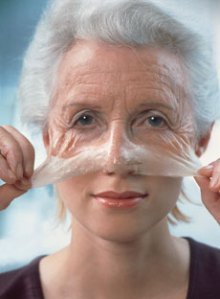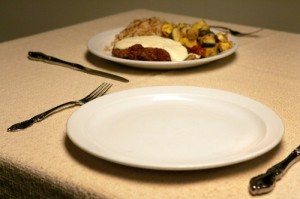Filed under: Uncategorized | Tags: Anti-Aging, baby boomer spending, cosmetics, global industry analysts, longevity
 The market for “anti-aging health” and similar products will reach nearly $292 billion by 2015, according to a new report from Global Industry Analysts.
The market for “anti-aging health” and similar products will reach nearly $292 billion by 2015, according to a new report from Global Industry Analysts.
The explosion in sales is largely due to the growing population of aging baby boomers with disposable incomes. The report highlights that even an economic downturn doesn’t have a significant effect on the sale of products like anti-wrinkle cream, self tanner and other goodies. Instead, consumers seek out lower cost versions rather than splurging on that $250 cod oil caviar skin mask. Not surprisingly, products labeled “organic” or with “natural ingredients” are expected to see the largest increase in sales.
The U.S. market is the largest for anti-aging products (which are divided into two categories – products for “age related” health conditions, and products for “cosmetic anti-aging benefit”), currently topping out around $50 billion a year. Anti-aging products are also the largest growing segment for consumer sales among baby boomers, with females leading the way…
Filed under: Uncategorized | Tags: Anti-Aging, calorie restriction, CRS, longevity
 The low-calorie diet has been on research radar since the 1930s, and long been espoused by faithful adherents, namely the Calorie Restriction Society (CRS), founded in 1993. Members of the group have since published several books, including The CR Way and The Longevity Diet, and claim that calorie restricted lifestyles (in a nutshell, following a diet of around 30% fewer calories than typically recommended for your age and activity level) promote longevity and better health.
The low-calorie diet has been on research radar since the 1930s, and long been espoused by faithful adherents, namely the Calorie Restriction Society (CRS), founded in 1993. Members of the group have since published several books, including The CR Way and The Longevity Diet, and claim that calorie restricted lifestyles (in a nutshell, following a diet of around 30% fewer calories than typically recommended for your age and activity level) promote longevity and better health.
Recently, some studies are backing up the claims of the CRS. Researchers at the University of California, Berkeley, found that mice who fasted every other day (eating 15% of their usual calories) had significantly lower rates of cancer. A small human study of 50 middle-aged men and women in Germany suggests that caloric restriction of 30% may significantly improve memory, apparently due to decreased levels of insulin and inflammation, though researchers are still trying to understand the connection.
Proving that calorie restriction promotes longevity in humans is the next step. Studies have already shown that low-calorie diets in mice, rats and monkeys can extend life expectancy.
If the CRS is right, and we can live longer by eating less, I wondered how much I’d be putting on my plate. According to this CR calculator, I already have the weight of a typical CR eater (yay?) but my “CR Twin” (aka – the version of me who eats according to a CR diet) would be enjoying a 1,700 calorie/day diet. Sounds to me like a lot less cake and a lot more lettuce.
To reassure myself that I should continue eating cake, and other, um, “CR no-no’s”, I checked out the reported downsides to the calorie restriction lifestyle. They include muscle atrophy, lack of essential nutrients, abnormal hair growth and cardiac arrest. Read up on those downsides a little further, and you’ll find they match the symptoms associated with another “extreme” lifestyle: anorexia nervosa.
Read the CRS response to the anorexia comparison here.